Filter by

Nuclear Security : Countering the Threat From States and Non-State Actors
The danger posed by nuclear weapons and fissile materials is ever present. The end of the Cold War and the significant reduction in the size of Russian and U.S. nuclear stockpiles did not change this fact of life. There are now nine states that possess nuclear weapons – the United States, Russia, the United Kingdom, France, China, Israel, India, Pakistan, and North Korea – and the number of…
- Edition
- -
- ISBN/ISSN
- -
- Collation
- -
- Series Title
- -
- Call Number
- 530 WIC n
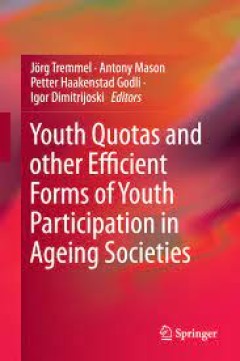
Youth Quotas and other Efficient Forms of Youth Participation in Ageing Socie…
This book examines ways to ensure that the rights, interests and concerns of young people are properly represented in Western democracies. One new proposal is the introduction of youth quotas in political institutions in order to counter the possible marginalization of young people caused by demographic ageing and, thereby, an overrepresentation of the interests of the elderly. The book expl…
- Edition
- -
- ISBN/ISSN
- 978-3-319-13431-4
- Collation
- -
- Series Title
- -
- Call Number
- -

Yearbook on Space Policy 2012/2013 Space in a Changing Worl
The Yearbook on Space Policy is the reference publication analyzing space policy developments. Each year it presents issues and trends in space policy and the space sector as a whole. Its scope is global and its perspective is European. The Yearbook also links space policy with other policy areas. It highlights specific events and issues, and provides useful insights, data and information on sp…
- Edition
- -
- ISBN/ISSN
- 978-3-7091-1827-6
- Collation
- -
- Series Title
- -
- Call Number
- -

Political Activist Ethnography Studies in the Social Relations of Struggle
Featuring research from Aotearoa (New Zealand), Bangladesh, Canada, Poland, South Africa, and the United States on matters as diverse as anti-poverty organizing, prisoners’ re-entry, anti-fracking campaigns, left-inspired think-tank development, non-governmental partnerships, involuntary psychiatric admission, and perils of immigration medical examination, contributors to this volume adopt a …
- Edition
- -
- ISBN/ISSN
- 9781771993999
- Collation
- -
- Series Title
- -
- Call Number
- 6 x 9, 304 pages
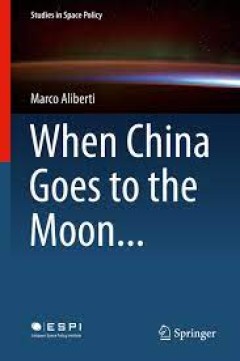
When China Goes to the Moon...
This book is about China’s ambitions in its most complex and internationally visible space endeavor, namely its human space exploration programme. It provides a comprehensive reflection on China´s strategic direction and objectives in space, including in particular those set forth in its human spaceflight programme and analyses the key domestic and external factors affecting the country’s …
- Edition
- -
- ISBN/ISSN
- 978-3-319-19473-8
- Collation
- XVI, 336
- Series Title
- -
- Call Number
- -
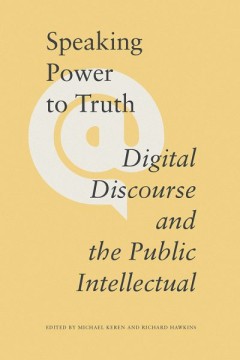
Speaking Power to Truth Digital Discourse and the Public Intellectual
Casting doubt on the assertion that online discourse, with its proliferation of voices, will somehow yield collective wisdom, Speaking Power to Truth raises concerns that this wealth of digitally enabled commentary is, in fact, too often bereft of the hallmarks of intellectual discourse: an epistemological framework and the provision of evidence to substantiate claims. Instead, the pursuit of t…
- Edition
- -
- ISBN/ISSN
- 9781771990332.01
- Collation
- -
- Series Title
- -
- Call Number
- 216 pages

Water Governance in the Face of Global Change From Understanding to Transfor…
This book offers the first comprehensive treatment of multi-level water governance, developing a conceptual and analytical framework that captures the complexity of real water governance systems while also introducing different approaches to comparative analysis. Applications illustrate how the ostensibly conflicting goals of deriving general principles and of taking context-specific factors in…
- Edition
- -
- ISBN/ISSN
- 978-3-319-21855-7
- Collation
- XV, 287
- Series Title
- -
- Call Number
- -
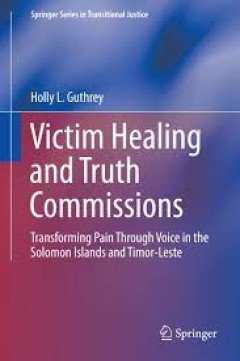
Victim Healing and Truth Commissions Transforming Pain Through Voice in Solo…
This book intends to contribute to the growing body of transitional justice literature by providing insight into how truth commissions may be beneficial to victims of mass violence, based on data collected in Timor-Leste and on the Solomon Islands. Drawing on literature in the fields of victim psychology, procedural justice, and transitional justice, this study is guided by the puzzle of why…
- Edition
- -
- ISBN/ISSN
- 978-3-319-12487-2
- Collation
- IX, 184
- Series Title
- -
- Call Number
- -

How Canadians Communicate IV Media and Politics
With contributions from such diverse figures as Elly Alboim, Richard Davis, Tom Flanagan, David Marshall, and Roger Epp, How Canadians Communicate IV is the most comprehensive review of political communication in Canada in over three decades – one that poses questions fundamental to the quality of public life.
- Edition
- -
- ISBN/ISSN
- 9781926836812.01
- Collation
- -
- Series Title
- -
- Call Number
- 400 pages
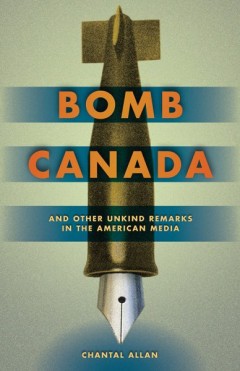
Bomb Canada and Other Unkind Remarks in the American Media
Canada and the United States. Two nations, one border, same continent. Anti-American sentiment in Canada is well documented, but what have Americans had to say about their northern neighbour? Allan examines how the American media has portrayed Canada, from Confederation to Obama’s election. By examining major events that have tested bilateral relations, Bomb Canada tracks the history of anti-…
- Edition
- -
- ISBN/ISSN
- 9781897425497.01
- Collation
- -
- Series Title
- -
- Call Number
- 154 pages
 Computer Science, Information & General Works
Computer Science, Information & General Works  Philosophy & Psychology
Philosophy & Psychology  Religion
Religion  Social Sciences
Social Sciences  Language
Language  Pure Science
Pure Science  Applied Sciences
Applied Sciences  Art & Recreation
Art & Recreation  Literature
Literature  History & Geography
History & Geography